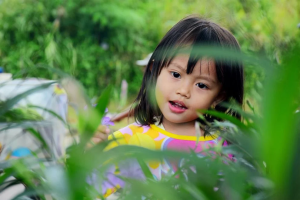Nature is Nurture: Outdoors are Key to Children’s Health, Buffer to Pandemic Stress
Treva Lind · Union-Bulletin · November 5, 2021
Featuring Dr. Amber Fyfe-Johnson, a Nature and Health researcher

Green spaces near homes and schools bring measurable benefits for children both in physical activity and mental health, according to widespread data. In citing science versus what’s intuitive, a new study could affect public policies on better nature access for all children.
Amber Fyfe-Johnson, a Washington State University researcher in Seattle and former pediatrician, is the lead author in a review of nearly 300 studies on the health impacts of being in green spaces for children of all ages. The research team’s review was published online Sept. 29 in the journal Pediatrics.
The work also supports two ideas – that spending time in nature can help families and young children deal better with the stresses of the pandemic – and access for children in underserved neighborhoods is more than a nicety; it’s a necessity, Fyfe-Johnson said.
“What we walked away with feeling confident about was that nature exposure increases physical activity in children, and it also improves cognitive behavior and mental health in childhood,” said Fyfe-Johnson, an assistant professor with WSU’s Institute for Research and Education to Advance Community Health and Elson S. Floyd College of Medicine.